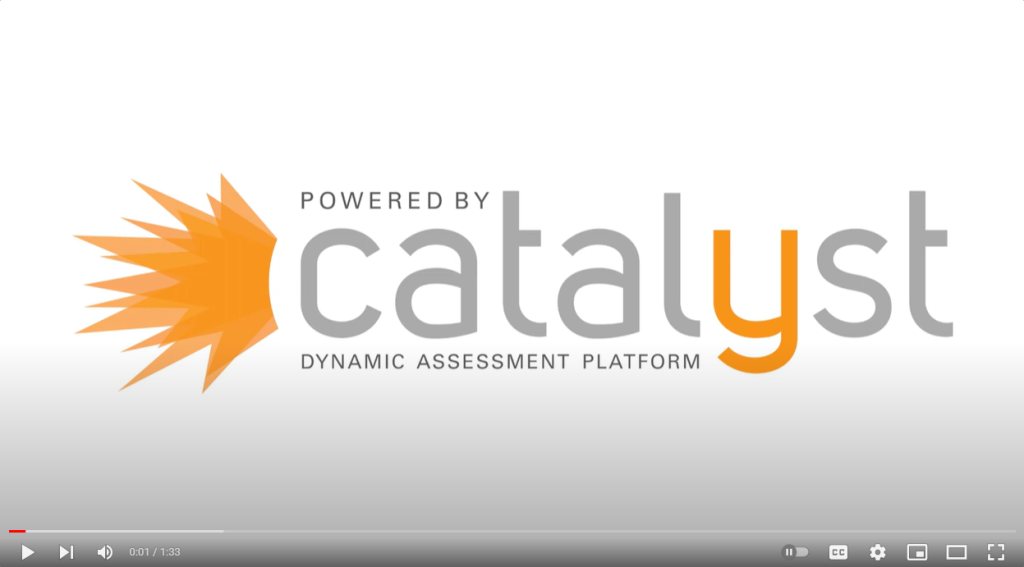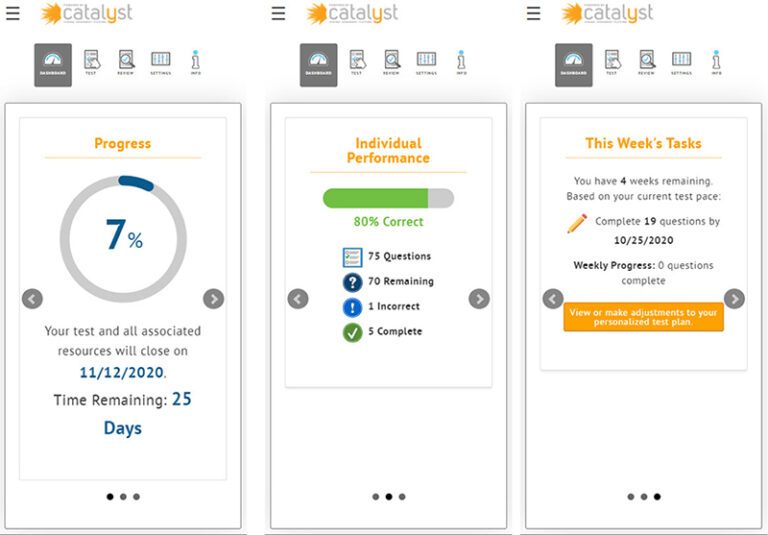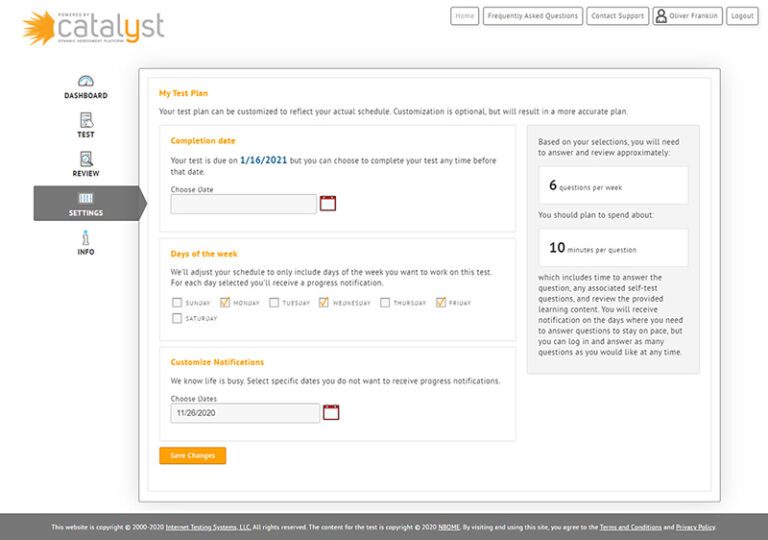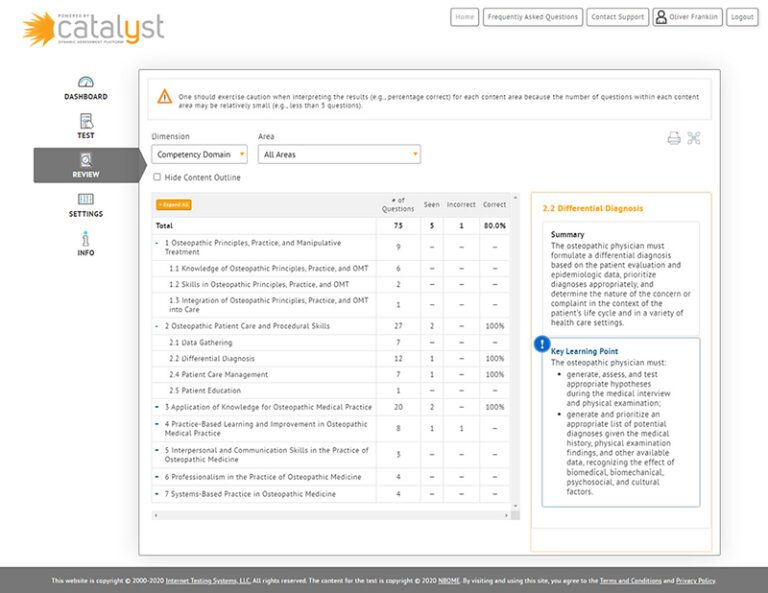CATALYST
About CATALYST
CATALYST, designed by the NBOME, is a dynamic learning and assessment platform that provides immediate performance feedback and educational resources after each question. This approach helps candidates reduce knowledge gaps, and assessments can be taken either in part or in whole at a candidate’s own pace.

Learning Through Assessment
Research on cognitive learning shows many effective ways to improve learning and memory. These include quizzing oneself on what they’ve learned before, getting immediate feedback, spacing out study sessions, and waiting a bit before reviewing material.1,2 In addition, practicing different skills or topics together and mixing up what has been learned can help learners remember things better in the long run.3 Medical residents, for example, have been shown to remember and apply surgical skills better when they are taught over several sessions instead of in one long session.4
Traditional examinations assess how a learner has performed through a pass/fail grade, or through a single score. These tests use a fixed standard to measure success.
The CATALYST platform differs through its use of formative assessment. This method focuses on how learners improve over time. It gives continuous feedback to show where they’re doing well, where they need to improve, and what topics they should focus on.
Immediate Feedback
Correct & Incorrect Answers
See what you got right or wrong in real time.
Rationales
Learn why that answer is correct and why the other choices are incorrect.
References
Get additional learning resources so you can reinforce your understanding.
Assessments on the CATALYST platform can be accessed 24/7
How can learners follow their progress on CATALYST?
Learners can follow their own progress on the CATALYST dashboard, which includes the total number of questions to be answered and how long they will be available, the number of questions the learner has answered, and the number of correct and incorrect responses.
CATALYST Features




CATALYST and You
Interested in using the CATALYST platform for your organization’s assessments? Contact Client Services for more information.
NBOME Published Research
CATALYST: Piloting a Longitudinal Assessment and Learning Program for Board Recertification and Continuous Professional Development
Horber DT, Flamini J, Gimpel JR, Tsai T-H, Shrum K, Hudson K. Journal of Osteopathic Medicine. doi:10.7556/jaoa.2020.031
References
- Roediger HL & Karpicke JD. Test-Enhanced Learning: Taking Memory Tests Improves Long-Term Retention. Psychol Sci 2006; 17: 249 – 255.
- Brown PC, Roediger HL, & McDaniel MA. Make it Stick: The Science of Successful Learning. Cambridge MA: Harvard University Press, 2014.
- Pan SC. The Interleaving Effect: Mixing It Up Boosts Learning. Scientific American, 2015.
- Moulton CA. Dubrowski A, MacRae H, Graham B, Grober E, & Reznick R. Teaching Surgical Skills: What kind of Practice Makes Perfect? A Randomized, Controlled Trial. Ann Surg 2006; 244 (3), 400- 409.
